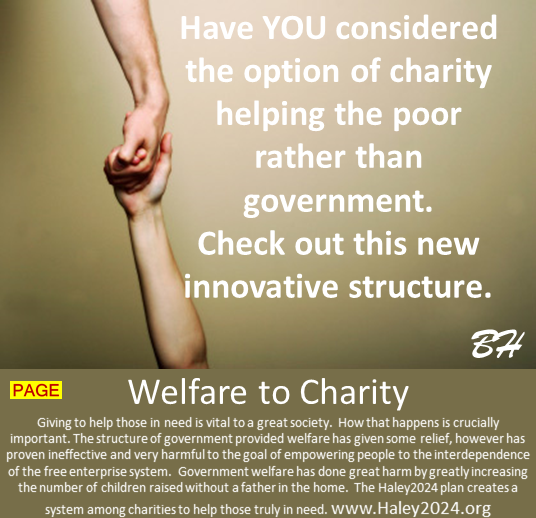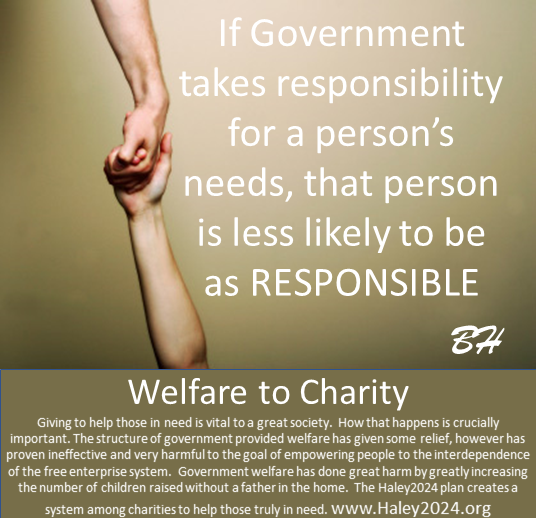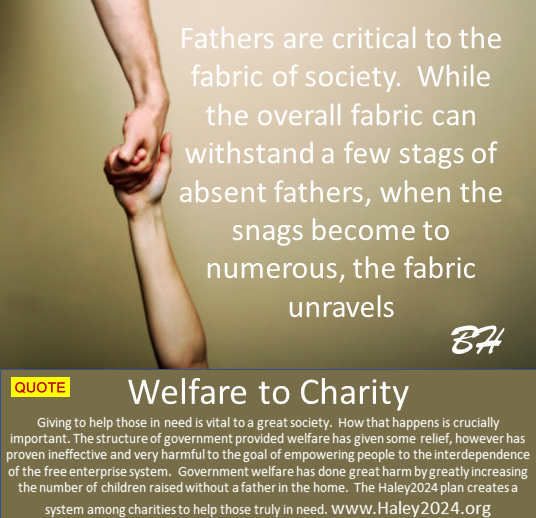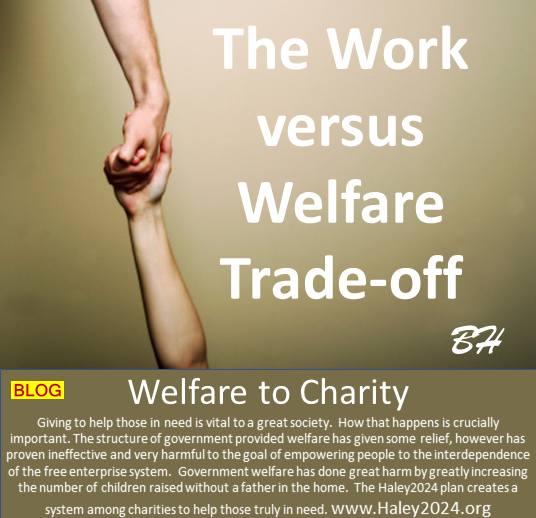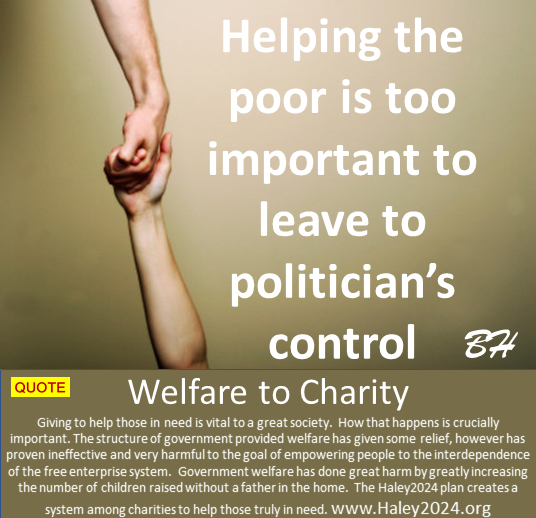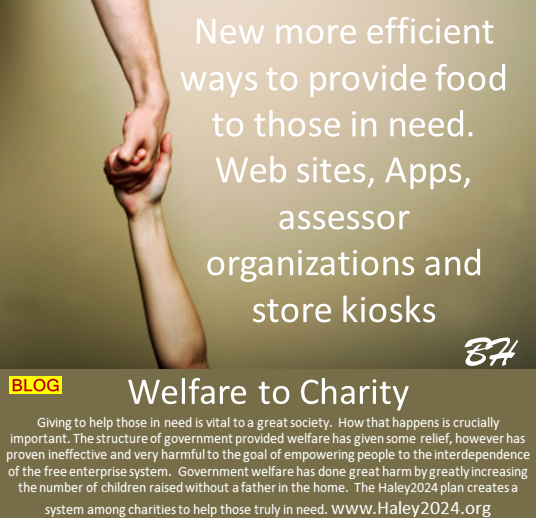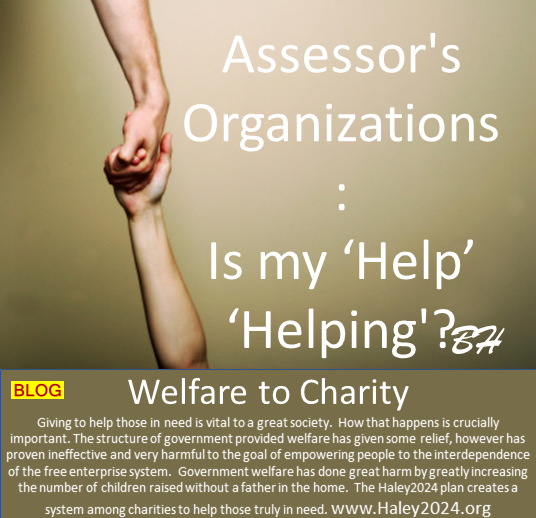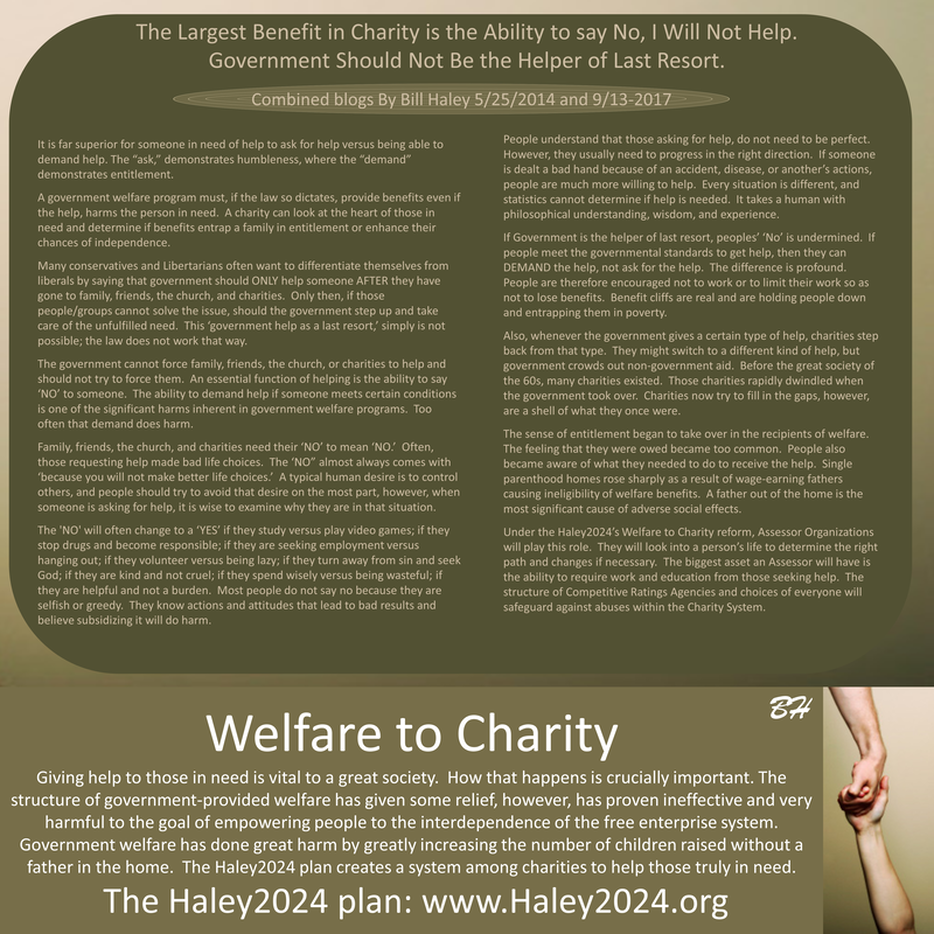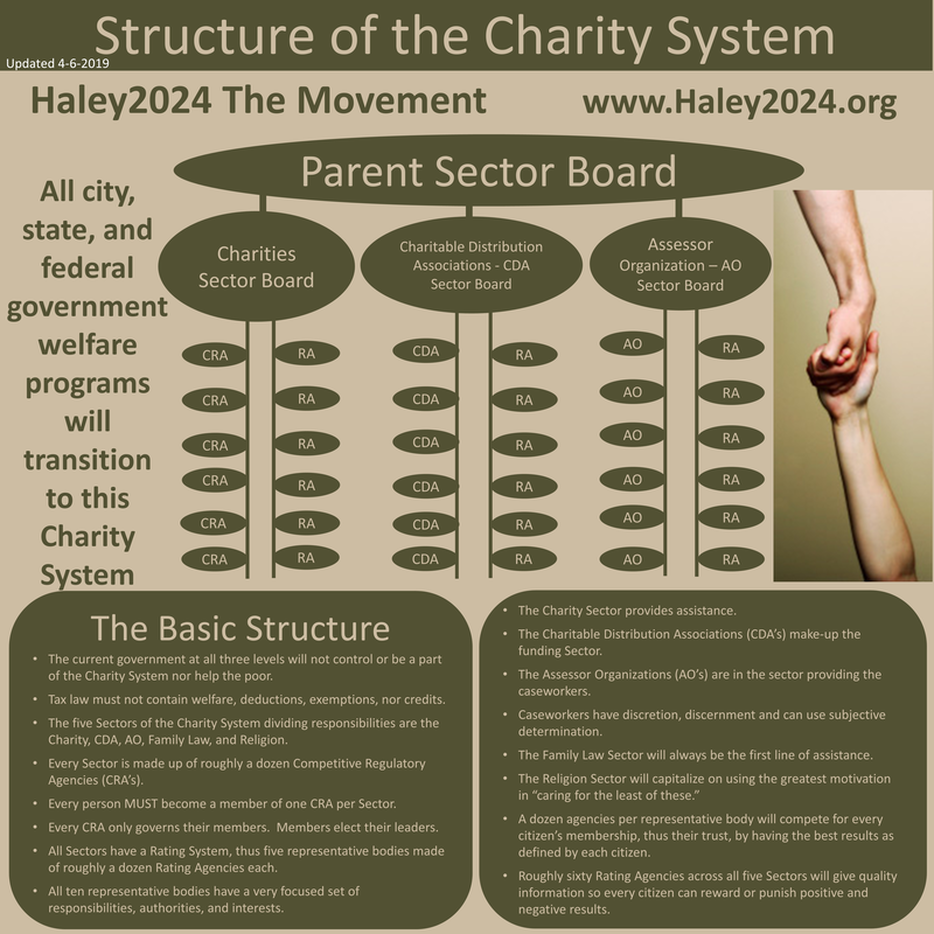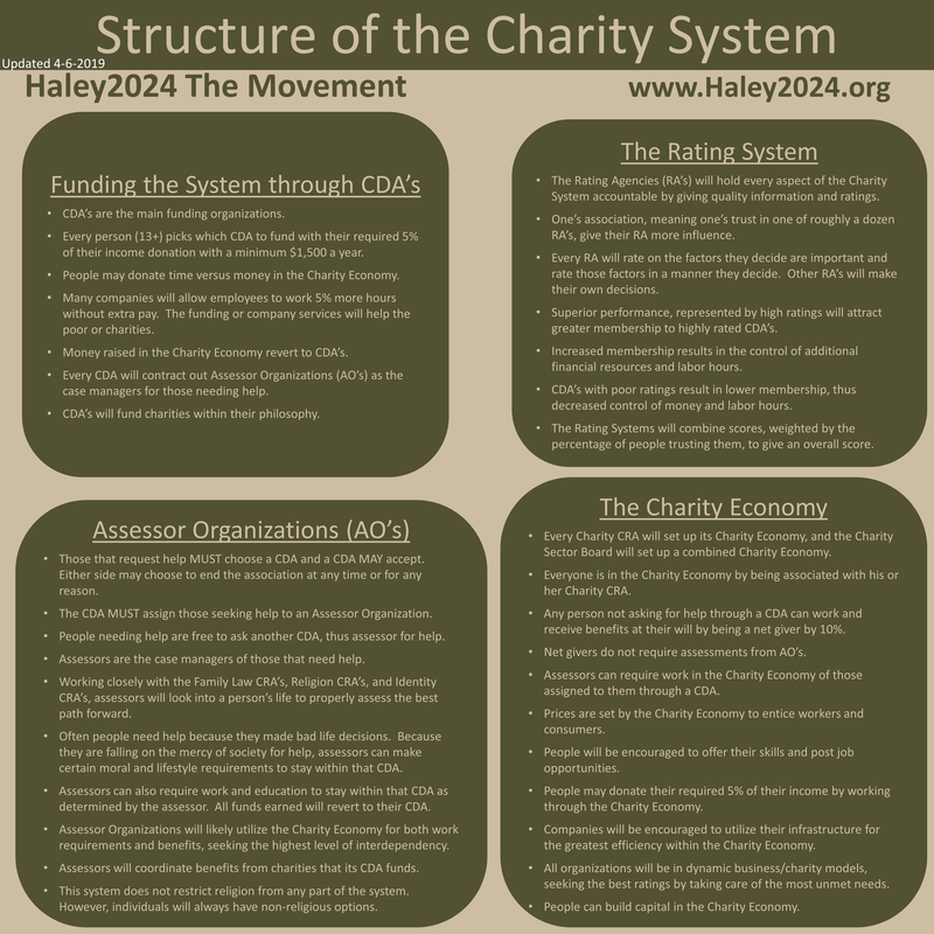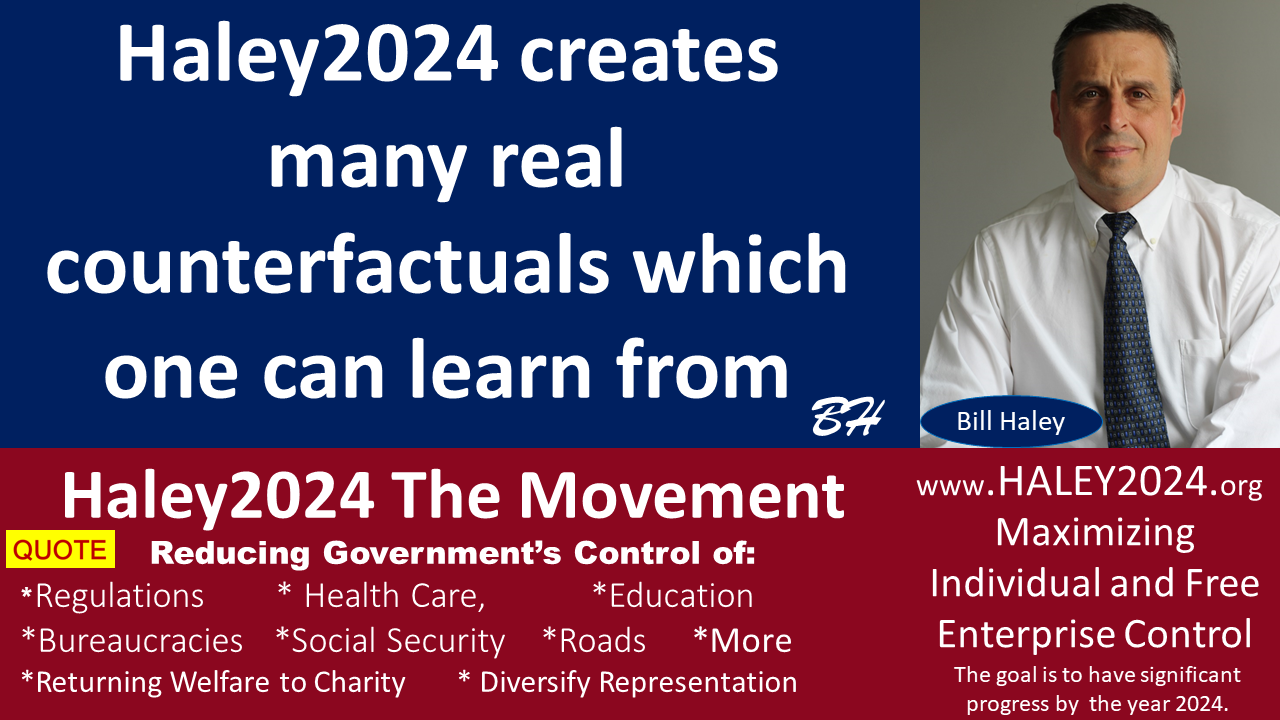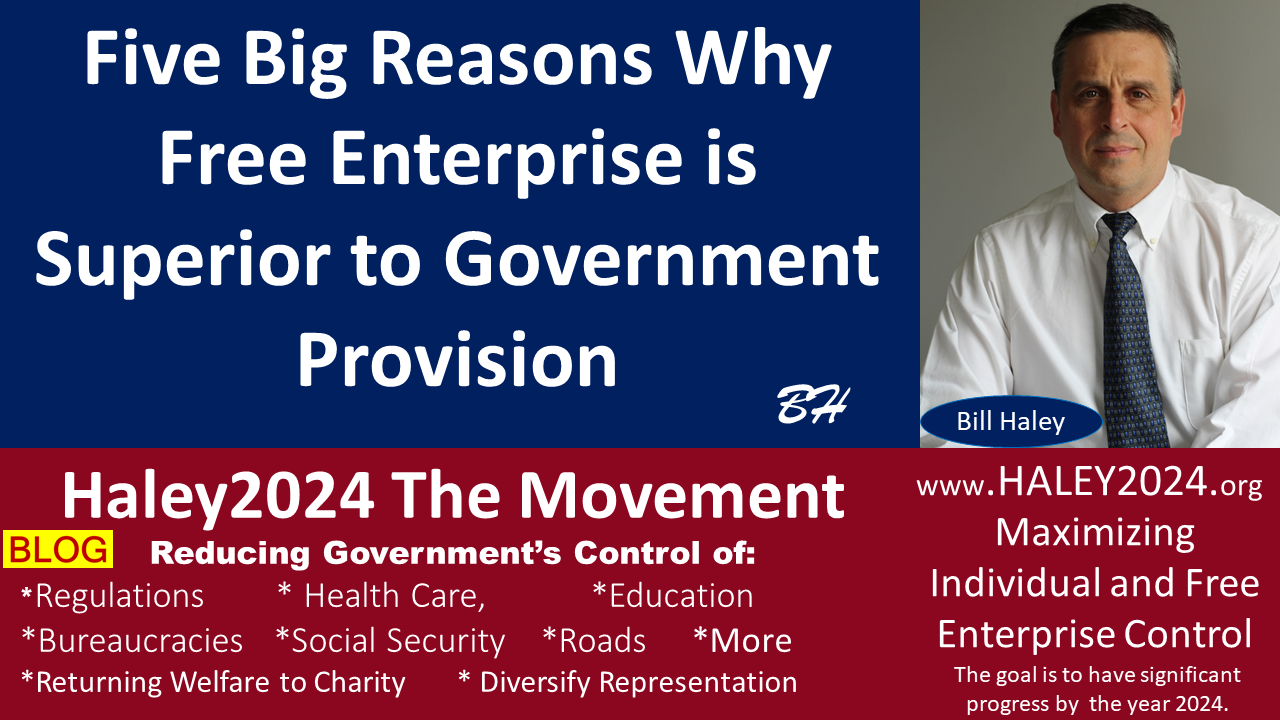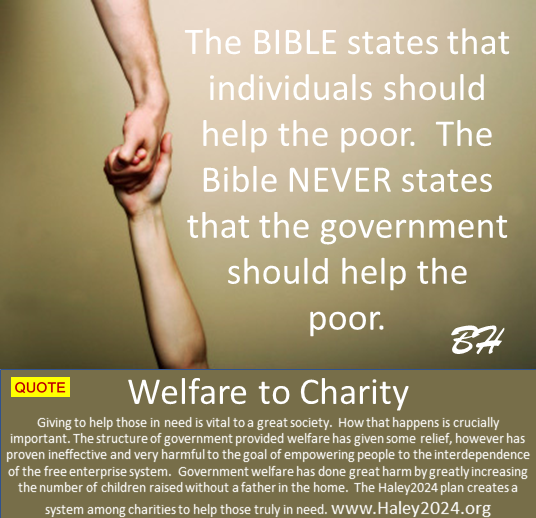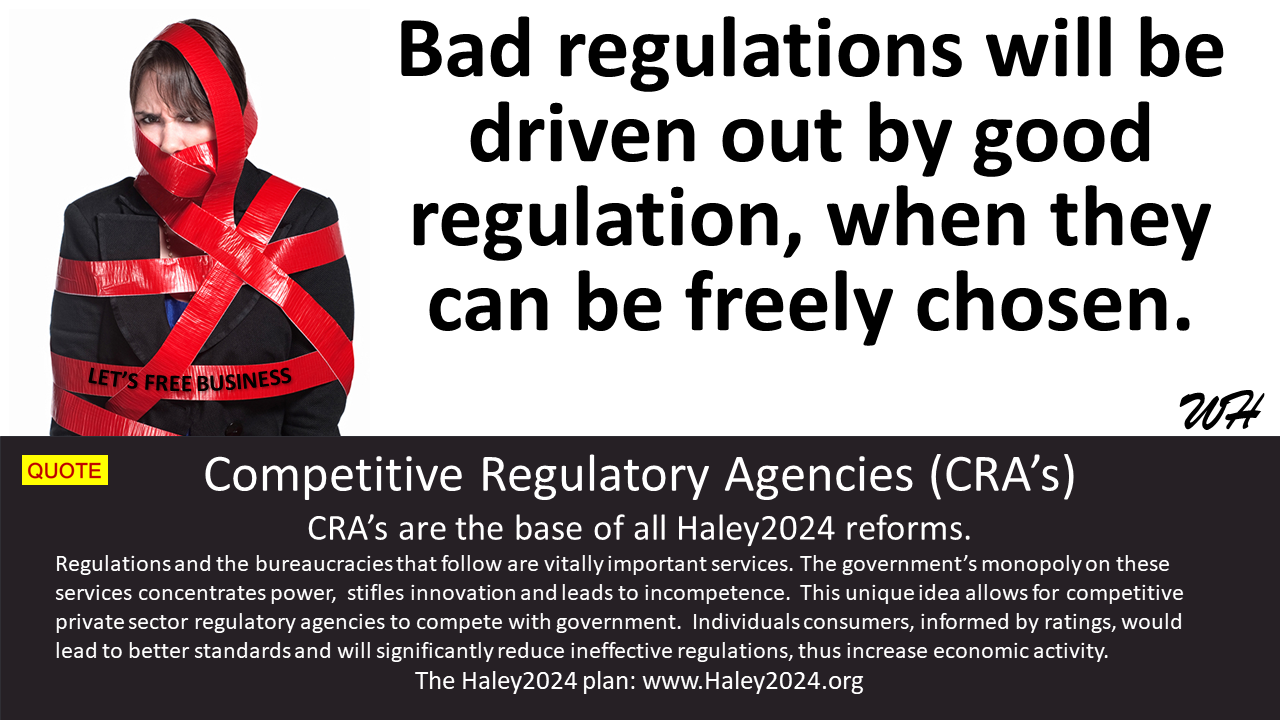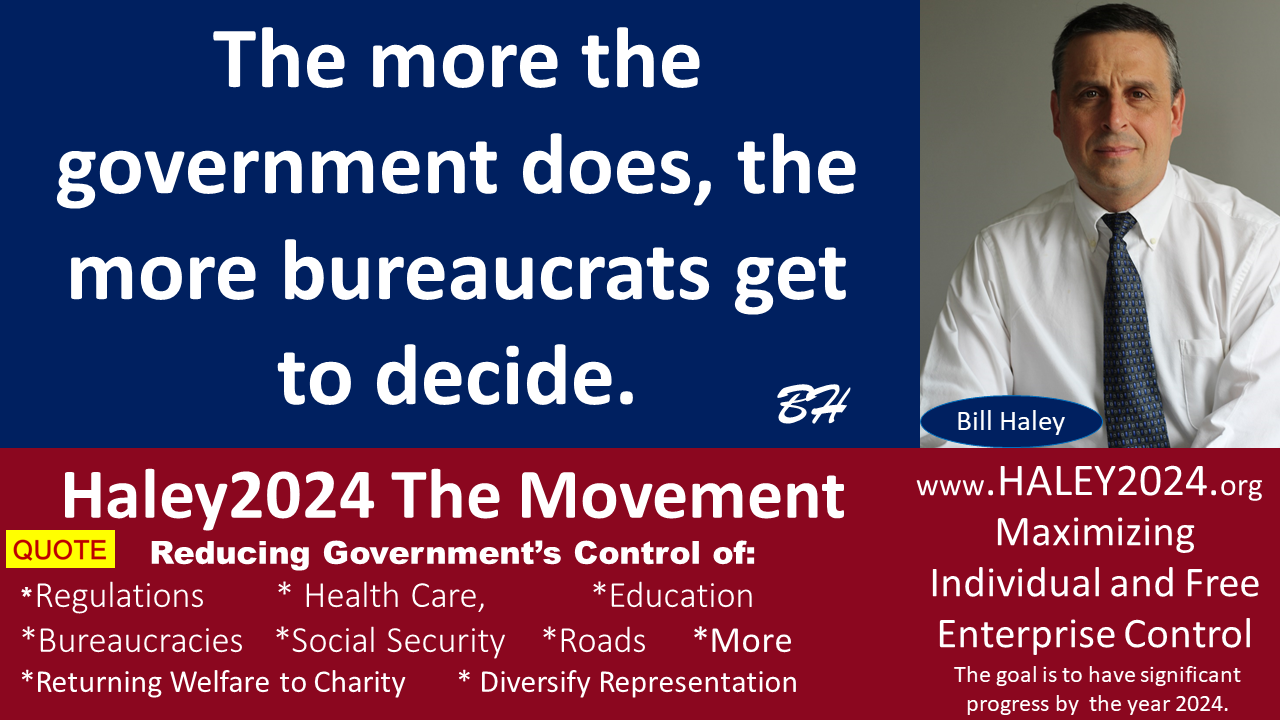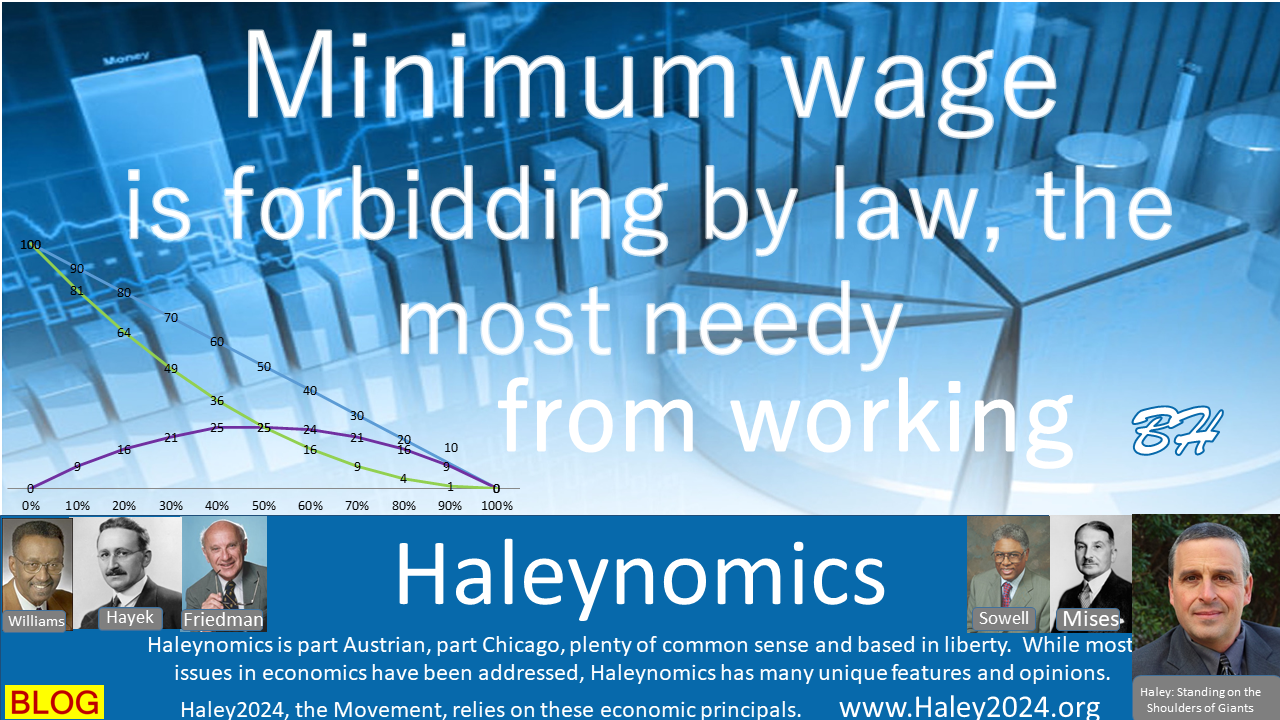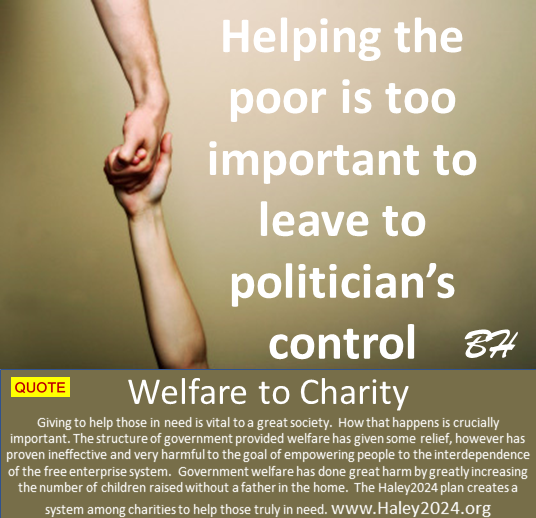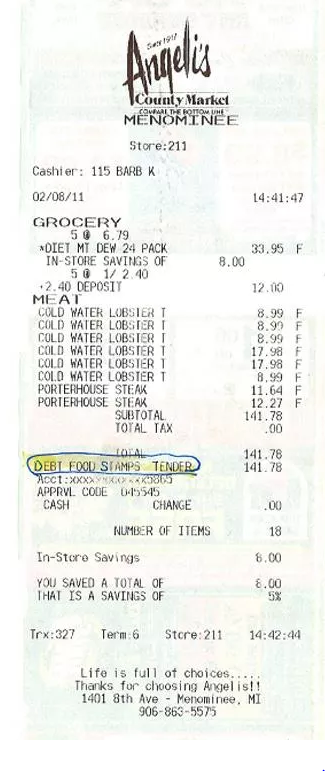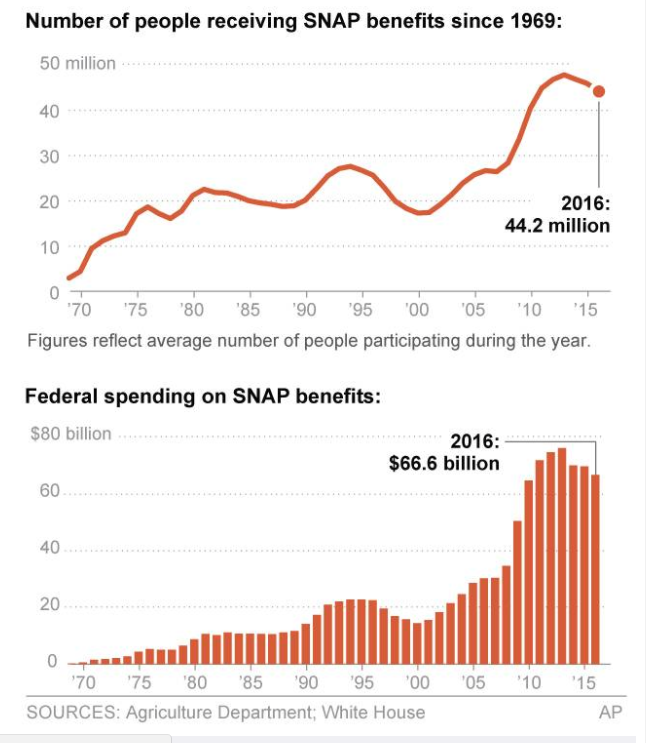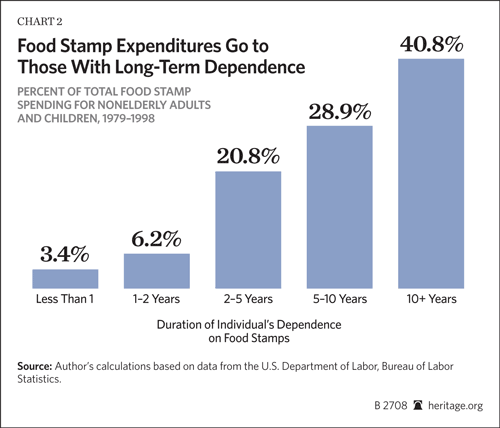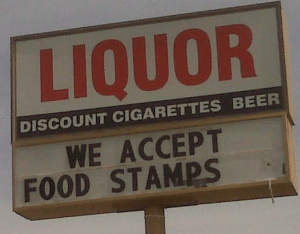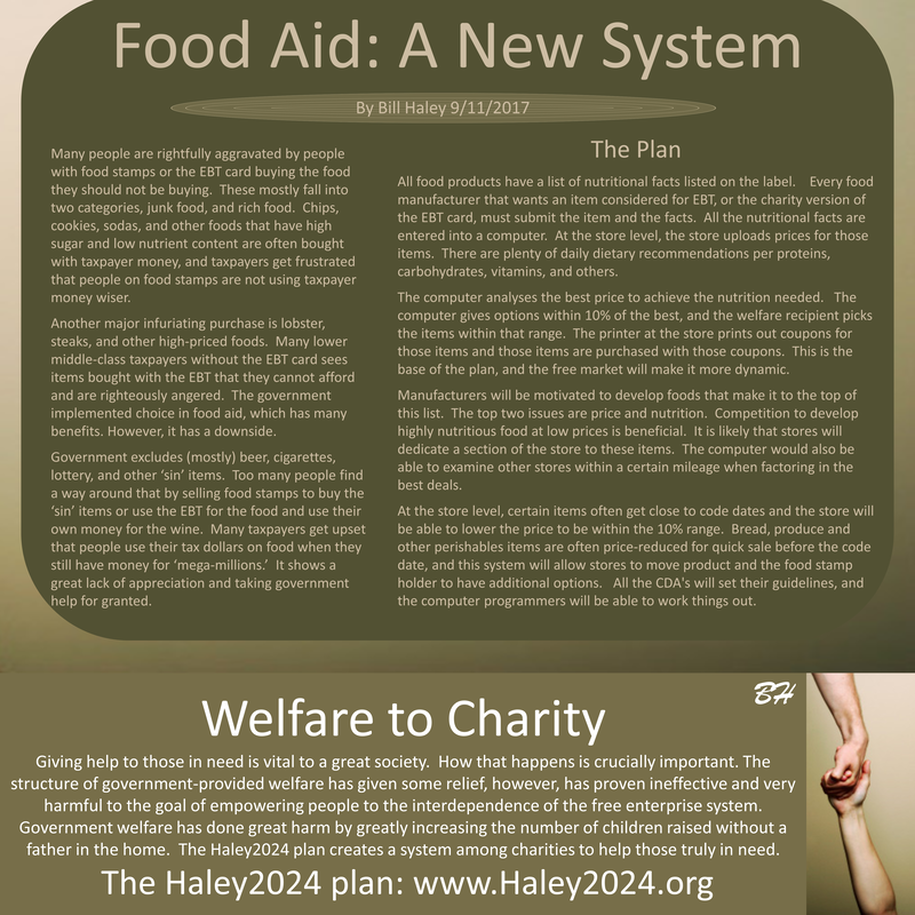| Many conservatives and Libertarians often want to differentiate themselves from liberals by saying that government should ONLY help someone AFTER they have gone to family, friends, the church, and charities. Only then, if those people/groups cannot solve the issue, should the government step up and take care of the unfulfilled need. This ‘government help as a last resort,’ simply is not possible; the law does not work that way. |
| The government cannot force family, friends, the church or charities to help and should not try to force them. An essential function of helping is the ability to say ‘NO’ to someone. The ability to demand help if someone meets certain conditions is one of the significant harms inherent in government welfare programs. Too often that demand does harm. The Largest Benefit in Charity is the Ability to say No, I will Not Help Government Enabling Destructive Lifestyles Enabling Destructive Dependency |
| Family, friends, the church, and charities need their ‘NO’ to mean ‘NO.’ Often, those requesting help made bad life choices. The ‘NO” almost always comes with ‘because you will not make better life choices.’ A typical human desire is to control others, and people should try to avoid that desire on the most part, however, when someone is asking for help, it is wise to examine why they are in that situation. |
| The 'NO' will often change to a ‘YES’ if they study versus play video games; if they stop drugs and become responsible; if they are seeking employment versus hanging out; if they volunteer versus being lazy; if they turn away from sin and seek God; if they are kind and not cruel; if they spend wisely versus being wasteful; if they are helpful and not a burden. Most people do not say no because they are selfish or greedy. They know actions and attitudes that lead to bad results and believe subsidizing it will do harm. |
| People understand that those asking for help, do not need to be perfect. However, they usually need to progress in the right direction. If someone is dealt a bad hand because of an accident, disease, or another’s actions, people are much more willing to help. Every situation is different, and statistics cannot determine if help is needed. It takes a human with philosophical understanding, wisdom, and experience. |
| If Government is the helper of last resort, peoples’ ‘No’ is undermined. If people meet the governmental standards to get help, then they can DEMAND the help, not ask for the help. The difference is profound. People are therefore encouraged not to work or to limit their work so as not to lose benefits. Benefit cliffs are real and are holding people down and entrapping them in poverty. |
| Also, whenever the government gives a certain type of help, charities step back from that type. They might switch to a different kind of help, but government crowds out non-government aid. Before the great society of the 60s, many charities existed. Those charities rapidly dwindled when the government took over. Charities now try to fill in the gaps, however, are a shell of what they once were. |
| The sense of entitlement began to take over in the recipients of welfare. The feeling that they were owed became too common. People also became aware of what they needed to do to receive the help. Single parenthood homes rose sharply as a result of wage-earning fathers causing ineligibility of welfare benefits. A father out of the home is the most significant cause of adverse social effects. |
| Under the Haley2024’s Welfare to Charity reform, Assessor Organizations will play this role. They will look into a person’s life to determine the right path and changes if necessary. The biggest asset an Assessor will have is the ability to require work and education from those seeking help. The structure of Competitive Ratings Agencies and choices of everyone will safeguard against abuses within the Charity System. |
